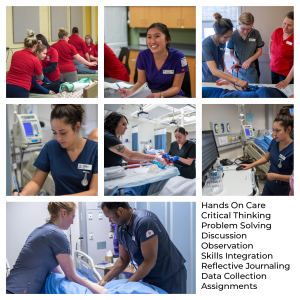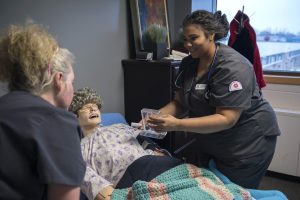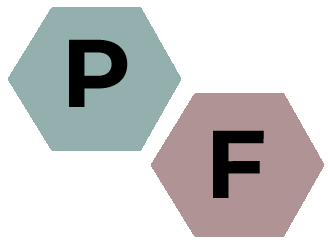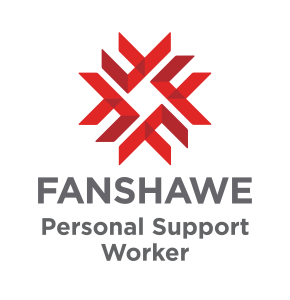7.2 HLTH 3054 PSW Clinical Professional Practice Expectations & Requirements
All shifts in the HLTH 3054 Clinical Professional Practice course are pre-scheduled on day and/or afternoon shifts in a PSW student group setting with a Fanshawe College Clinical Instructor. As all students in this course attend placement together in a group, changes can not be made to any student’s schedule. It is therefore very important to attend all scheduled shifts.
HLTH 3054 Clinical Professional Practice

- Explain the role of the PSW work in a Long-Term Care setting.
- Understand and maintain confidentiality.
- Apply knowledge and skills while providing personal care for residents.
- Promote and maintain the health and safety of the PSW and the resident.
- Communicate effectively & appropriately using oral, written & non-verbal methods.
- Act within the PSW role when making observations regarding clients’ health, function and emotional state.
- Adhere to the policies of the PSW program and the clinical agency.
- Organize and provide care for a multi-resident assignment.
- Complete assigned caregiving tasks as a member of the health care team.
- Promote support and assistance for clients who are physically or cognitively impaired.
- Promote support and assistance to clients who are dying and to their families.
- Demonstrate competence in all Domains of Practice Competencies (see Chapter 2).

Clinical Learning in Practice
During this clinical placement, you are expected to actively participate in resident care and foster self-directed learning. While you are supported and guided by your Clinical Instructor, your engagement in hands-on experiences is essential to your growth. This clinical experience will provide you with opportunities to work with other allied healthcare team members.
Clinical activities are designed to help you apply course concepts to the healthcare setting. You’ll have opportunities to reflect, share insights, and develop your skills through observation, discussion, and practice. These experiences will help you strengthen your problem-solving abilities, critical thinking, and capacity to provide safe, client-centred care.
Your learning will be assessed through direct observation in the clinical setting, participation in a “Skills Integration Day,” and completion of reflective writing, data collection sheets, and course assignments.
PSW Clinical Professional Practice Guidelines and Expectations
The following section summarizes guidelines and expectations for your Clinical Professional Practice Placement.

Students are to follow all Fanshawe College and agency policies throughout this Professional Practice course with regard to behaviour, attendance, punctuality and reporting absences/illnesses.
General
All clinical placements are subject to availability, and it may be necessary to assign you to clinical agencies in an outlying community. You may be expected to travel to your placement, which may not always be accessible by public transportation. You are expected to make your own travel arrangements to all assigned clinical agencies. You will be assigned a day and/or evening shifts during this clinical placement.
![]()
Cell phones are NOT allowed to be carried at placement, except during your pre-assigned breaks. Cell phones should be stored with your belongings.
Because the opportunity exists to take unauthorized photos while attending placement, if you are found to have a cell phone with you during client care, you will be asked to leave the agency and will be marked absent that day.
Safety

The provision of client care in the clinical setting is time sensitive and may cause safety concerns for the client(s) involved if client care cannot be performed in a reasonable length of time. As such, it may be an unsafe practice to accommodate extra time when you:
a) Perform physical care to clients or
b) Document client care, which needs to be completed promptly in the clinical setting.
Due to the risk of re-injury or injuring clients, you are not permitted to arrive at the clinical agency with pre-existing injuries. There will be no “light duty” provision or accommodation for injuries at any time. A doctor’s note may be required in order to be permitted to return to the clinical placement.
If you are deemed UNSAFE in your practice, you will be asked to leave the clinical agency immediately and may be either given a failing grade for that course or be dismissed from the PSW program.
Examples of UNSAFE behaviours may include (but are not limited to) the following:
- Failure to follow expected safety guidelines while performing any lifts, transfers, or personal care.
- Failure to provide reasonable care in order to prevent harm to the client.
- Any action — or lack of action — that results in jeopardizing the safety, dignity, and/or sense of well-being of any client or worker or other student.
Communication & Professionalism
 It is important to communicate with clients, staff, interprofessional healthcare providers, instructors, and peers in a professional manner in order to provide care that is safe, effective, and appropriate. If you are unable to communicate, listen, understand, and respond effectively, you may be deemed unsatisfactory in your Clinical Professional Practice Placement.
It is important to communicate with clients, staff, interprofessional healthcare providers, instructors, and peers in a professional manner in order to provide care that is safe, effective, and appropriate. If you are unable to communicate, listen, understand, and respond effectively, you may be deemed unsatisfactory in your Clinical Professional Practice Placement.
Confidentiality
To protect client privacy and maintain professional standards:
- Sharing any identifiable client or family information, including photos, is strictly prohibited. Names must never appear in assignments or journals.
- All client-related materials (e.g., data collection tools) must be securely destroyed or permanently deleted/shredded at the end of the placement.
- Posting any content related to the agency, clients, assignments, or colleagues on social media is not allowed and may result in failure of the clinical course.
Attendance
Students are required to meet all course outcomes and Domains of Practice Competencies in all clinical courses. Attendance and satisfactory performance are required to effectively evaluate skills and allow students time to practice and incorporate feedback. Personal commitments such as vacations, childcare, or employment are not considered valid reasons for missing clinical time and may jeopardize course completion and result in being unsuccessful in the course.
Personal commitments such as vacations, childcare, or employment are not considered valid reasons for missing clinical time and may jeopardize course completion and result in being unsuccessful in the course.
After a second absence—regardless of the reason—a Collaborative Success Plan (CSP) will be developed with the Clinical Instructor. Failure to meet the expectations outlined in the CSP may result in an unsatisfactory grade for the course (Appendix D: PSW Student Collaborative Success Plan).
In the event that an absence is unavoidable, you will need to notify the agency and the Clinical Instructor at least one hour before the start of your clinical placement shift.
Inclement weather
If travelling in bad weather conditions means you can not safely attend clinical placement, notify the Fanshawe College Clinical Instructor and the agency at least an hour prior to the start of the shift; failure to do so would result in being marked absent.
You will not be permitted to leave the clinical agency property during your assigned clinical hours. If you leave the agency property during your clinical placement shift, it is unsafe and may impact your success in the course. A Collaborative Success Plan will be initiated.
Uniforms
Fanshawe College’s PSW Student Dress Code has been created to project professionalism and to follow health and safety policies for both Fanshawe College and the Clinical Professional Practice agencies. Anyone who refuses to comply with this uniform policy will be asked to leave the Clinical Placement site, and a follow-up discussion will take place with the Program Coordinator. This may lead to being unsuccessful in the course.

Uniforms or scrubs need to be worn for all lab practice classes, and clinical placement settings. Pants must be hemmed appropriately and not rolled up or taped into place. Sweaters are not permitted at any time over the uniform. Long-sleeved shirts may be allowed to be worn under the uniform in special circumstances only.
Crests
All uniforms must have the Fanshawe College PSW crest securely attached to the outermost portion of a uniform’s left sleeve. Crests cannot be attached to uniforms by the use of staples or pins.
Name tags
Fanshawe College identification name tags are to be visible at all times, worn on the front left side of the uniform, high enough to prevent client injury when administering care. They must be worn for all lab and Clinical Practice Sites.
Clinical Placement Shoes
White or black, clean, supportive shoes must be worn (no canvas running shoes, sling backs, sandals, open toes or open heels). Shoes are not to be worn to or from the lab or clinical agency.
Jewellery
Body jewellery poses a Workplace Health and Safety risk and can not be worn.
- No visible body piercings.
- Only one plain stud earring in each ear is acceptable.
- No hoops or rings allowed in any visible body area.
- No necklaces; they can be pulled or used to strangle.
- You can wear one plain wedding band.
- Do not wear a watch on your wrist; instead, have a watch pinned to your uniform.
Scents
Due to the increasing risk of allergic reactions and sensitivities, no perfumes, colognes or body sprays are allowed in either lab or Clinical Placement settings.
Nails
Do not have long fingernails, nail polish or artificial nails as they pose a Workplace Health and Safety risk (both physical safety and risk for pathogenic transfer).
Hair
Hair must be neat, contained, and worn off the face and collar. Braids/ ponytails must be secured and off the collar.
Facial Hair
Male students must be clean-shaven. If beards or moustaches are worn, they must be neatly trimmed and be professional in appearance. Consult with your Clinical Instructor and follow your placement agency’s Infection Control policies and occupational health guidelines. Facial hair may impact the efficiency and use of the N95 mask.
No gum chewing while in the lab or Clinical Placement settings.
Evaluation
In order to graduate from the PSW program, you will need to be satisfactory in completing all three clinical courses of the PSW program.

The final grade will be determined as either a: P = pass or an F = fail
You are expected to attend all of the shifts required during your Professional Practice Placement experiences in order to be successful in the courses. Absences during your placement course may result in an unsatisfactory grade. Your progress will be monitored through ongoing evaluation.
Progress is assessed on the basis of resident care and reflective activities. You will reflect on the care you provide and the learning that takes place. See Chapter 6, Reflective Practice, for expectations.

Clinical Instructors will provide ongoing feedback and complete the practice evaluation at the middle and end of the term with you. A Collaborative Success Plan (CSP) (Appendix D: PSW Student Collaborative Success Plan) may be initiated between you and the clinical instructor, in consultation with the Program Coordinator, if unprofessional behaviours are displayed and professional practice domains are not being met.
Meeting, discussing and developing a CSP with your Clinical Instructor will provide you with feedback and to develop strategies to strive towards success in the course (A CSP is not meant to be punitive). Examples of CSP initiation may include: repeated absenteeism, late arrivals, unprofessional or safety concerns, concerns in any of the domains of practice competencies.
Clinical Professional Practice evaluation for the HLTH 3054 Clinical Professional Practice course is based on your performance of the course competencies and completion of:
- Attendance.
- Reflective Practice Activities.
- Data Collection.
- Course Assignments.
- Conference Discussion & Participation (presentation).
- Appropriate and professional behaviour at all times.
- Professional communication with Clinical Instructor, reviewing Domains of Practice and progression in the course each shift.
- Demonstration of satisfactory progression in all five Domains of Practice (see Chapter 5.2).
- Completion of Domains of Practice Competencies on the final evaluation forms and a satisfactory grade in each of the five domains of practice (see Chapter 5.2).
- Skills Integration Day at the College.
Note from Fanshawe College PSW Program

The College may terminate a student’s enrolment in a course or registration in a program at any time where the student’s performance in any academic setting is deemed to be detrimental to self, others or the College. Detrimental performance is determined by any of the following: unsafe practice for self and/or others, interference with the progress of other students, unethical/unprofessional practice, and prolonged or frequent absence. Termination in the form of either suspension or expulsion may also result from breaching proper conduct and being sanctioned under the Student Code of Conduct Policy 2-G-1 [PDF].
Subject to a review by the Program Coordinator and Clinical Instructor, students may be given a one-time opportunity to repeat a clinical course, provided the student has not failed two other courses (lab or theory). Students who fail another clinical course (either the same course or a subsequent one) will be terminated from the program.
A returning student cannot enter directly into HLTH-3055 PSW Consolidation Professional Practice after an interruption in their program. The student must first satisfactorily complete HLTH-3054 PSW Clinical Professional Practice at the student’s expense. Students must be aware that this is conditional on the availability of supervised practice opportunities.
Full-time students are usually block-enrolled (e.g. pre-enrolled) into all clinical courses. If the student fails a clinical course, they are advised to officially withdraw from any subsequent clinical courses they are registered in. Failure to withdraw from subsequent courses will result in an “F” grade for those courses.
OpenAI. (2025). ChatGPT. [Large language model]. https://chat.openai.com/chat
Prompt: In a realistic style, create an image of a clinical instructor having a conversation with a nursing student, both wearing scrubs. The student is looking thoughtful.
Content: Adapted with permission from the HLTH 3054 Clinical Professional Practice Curriculum. 2025. © Fanshawe College.

